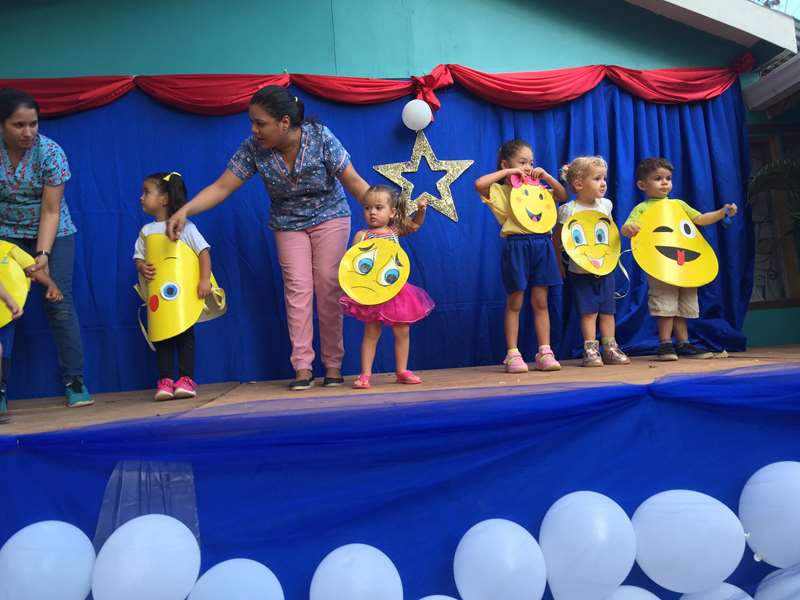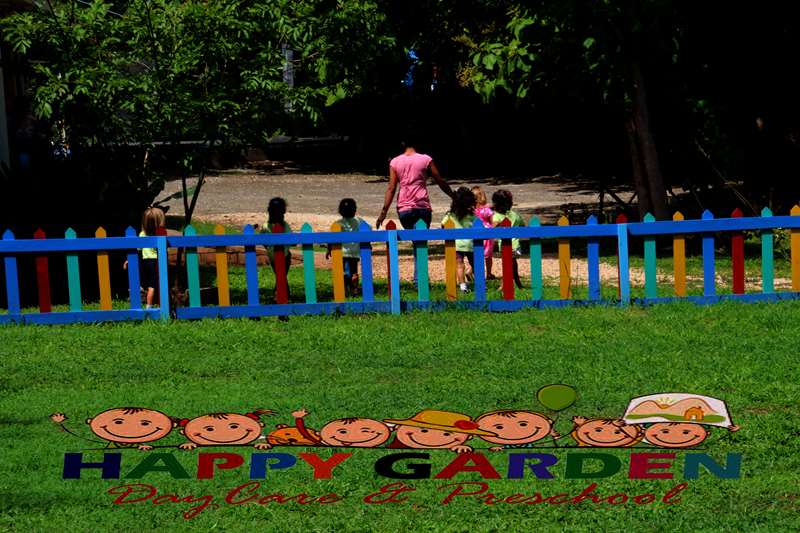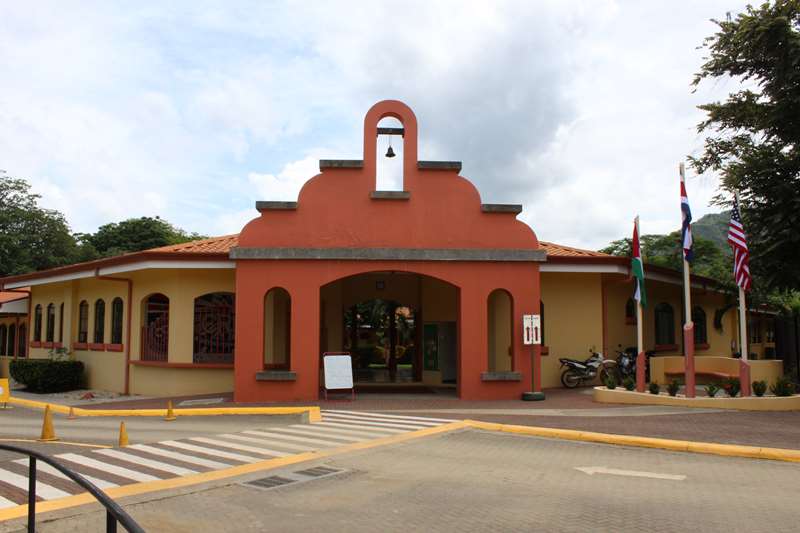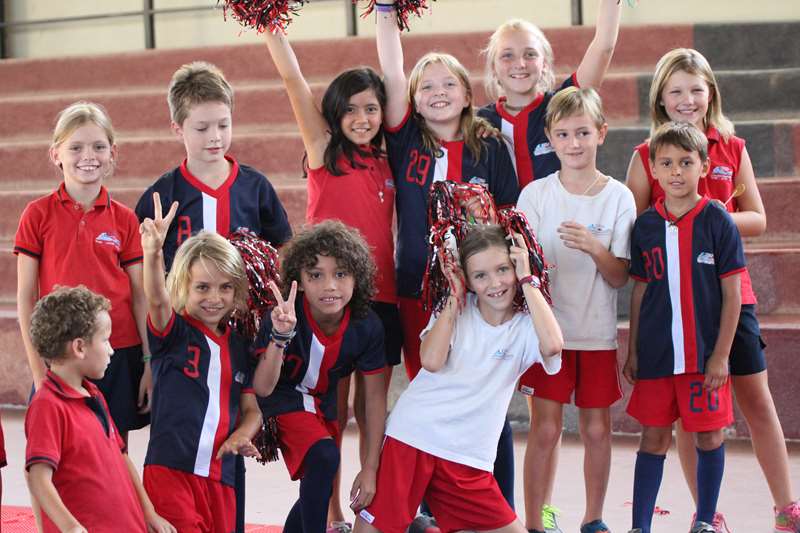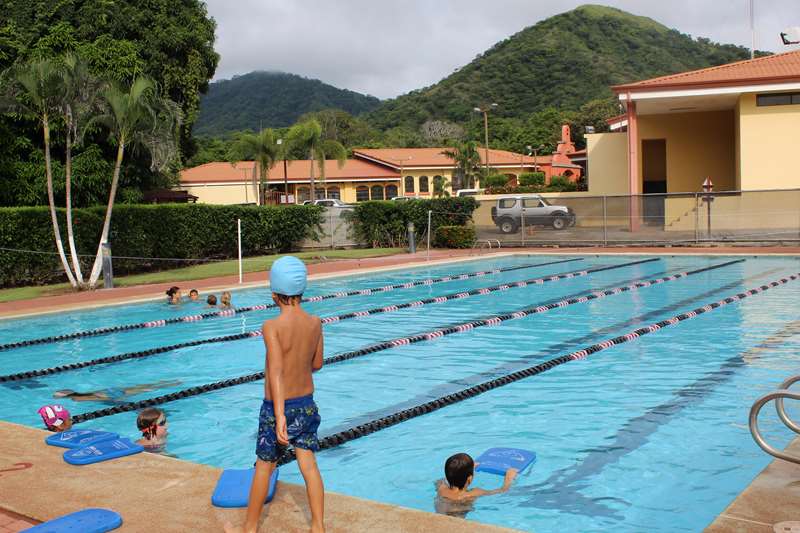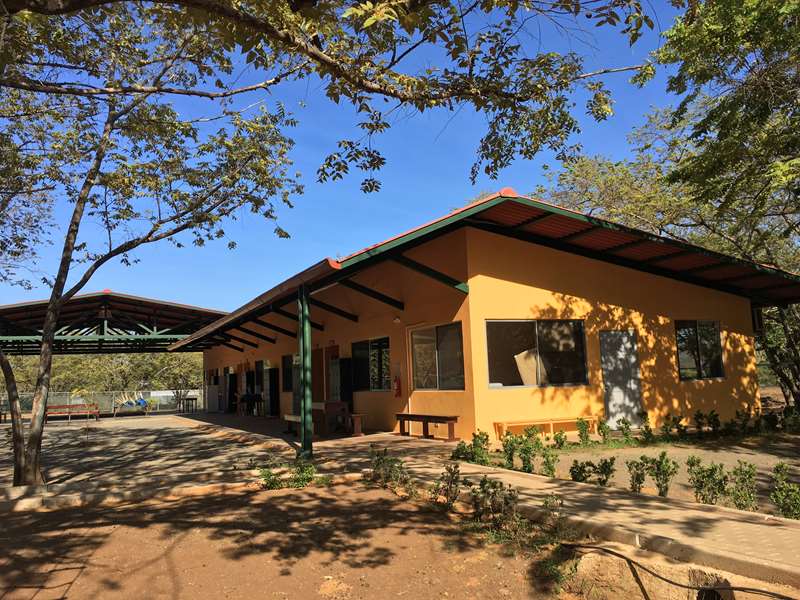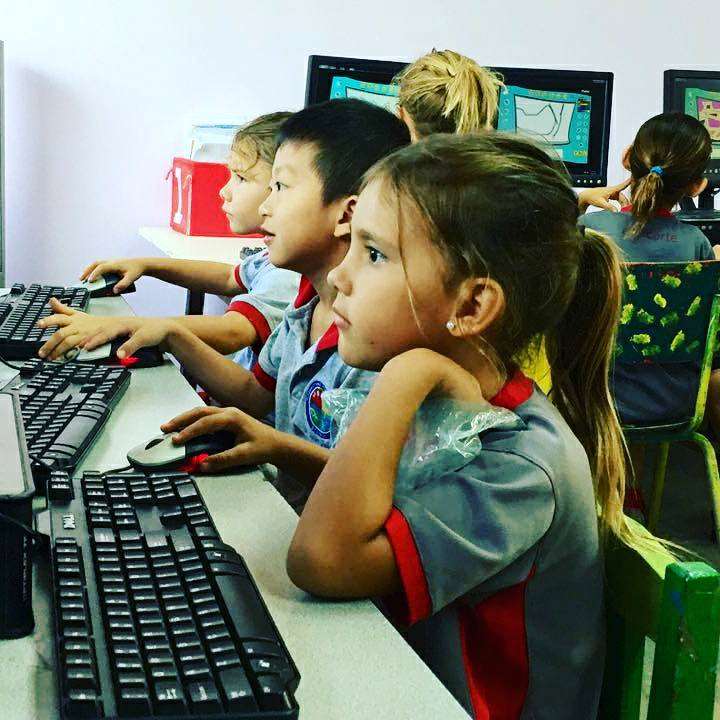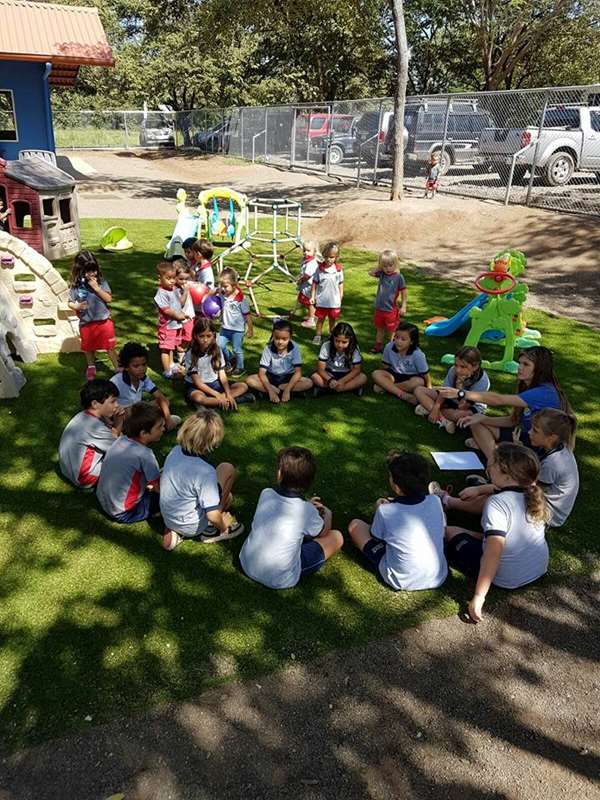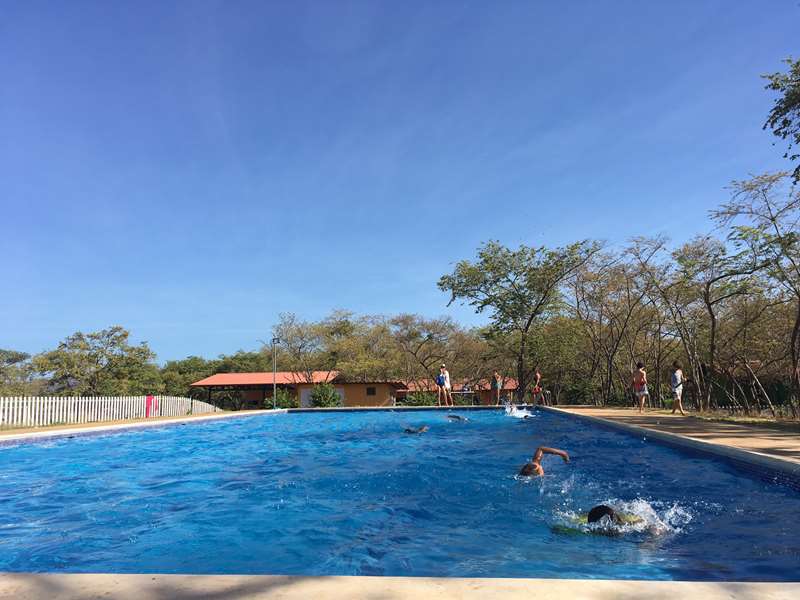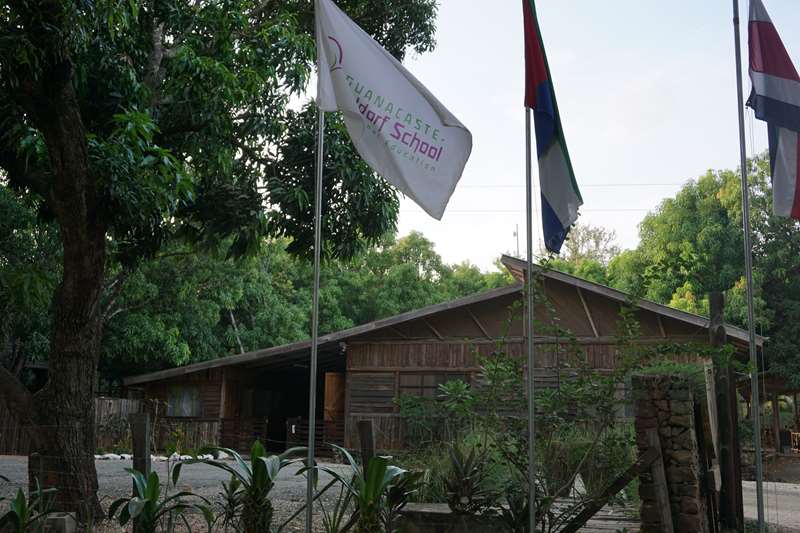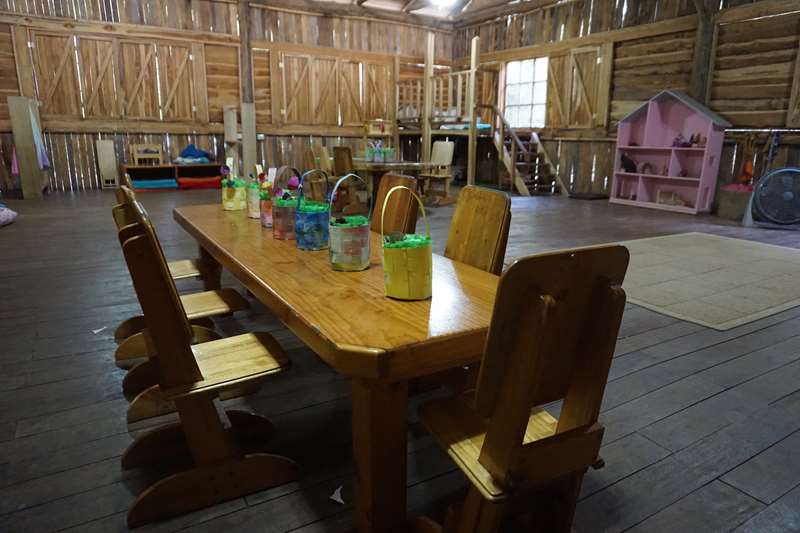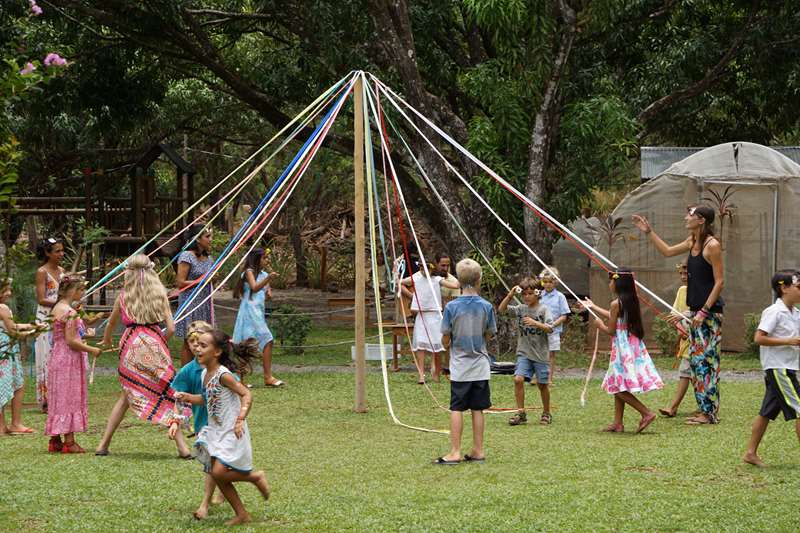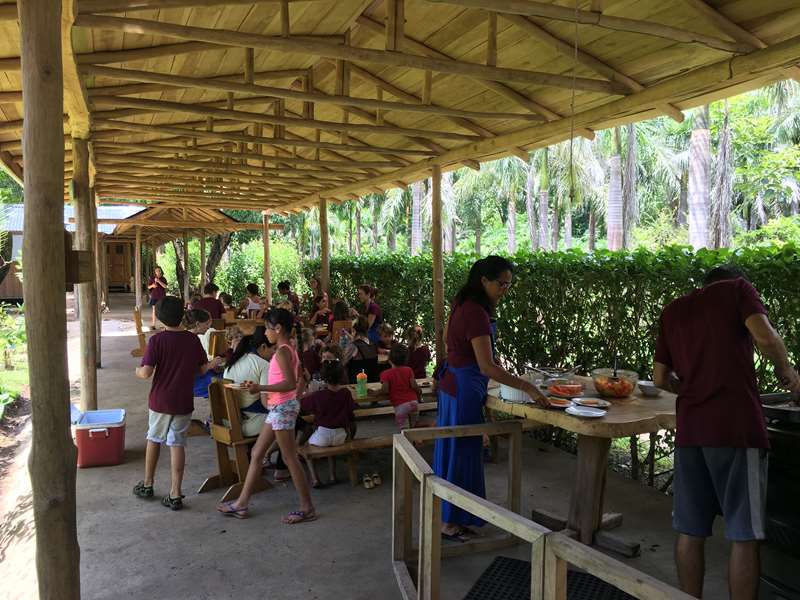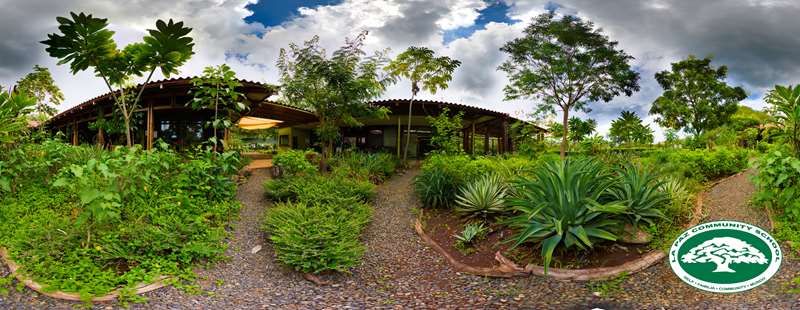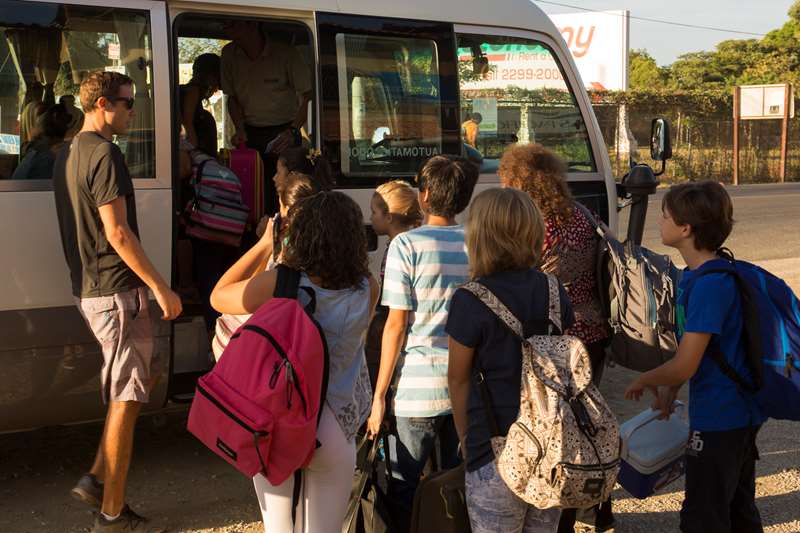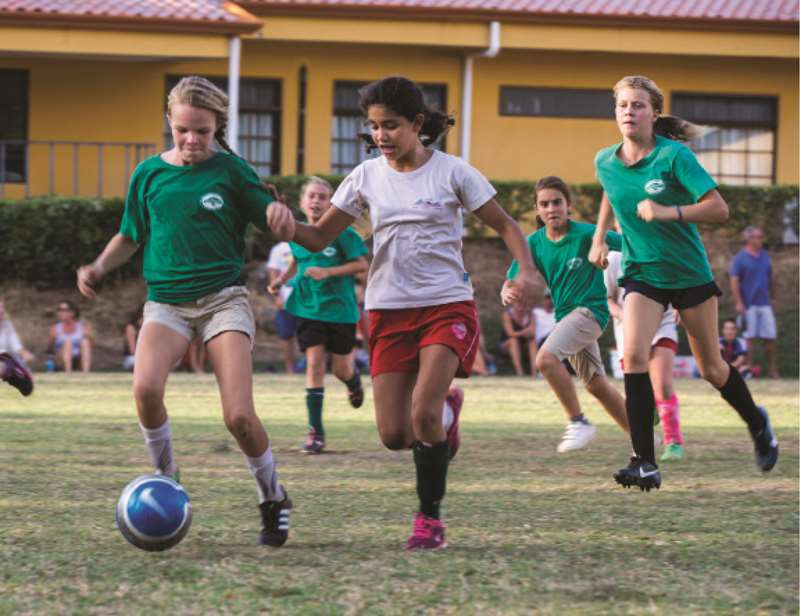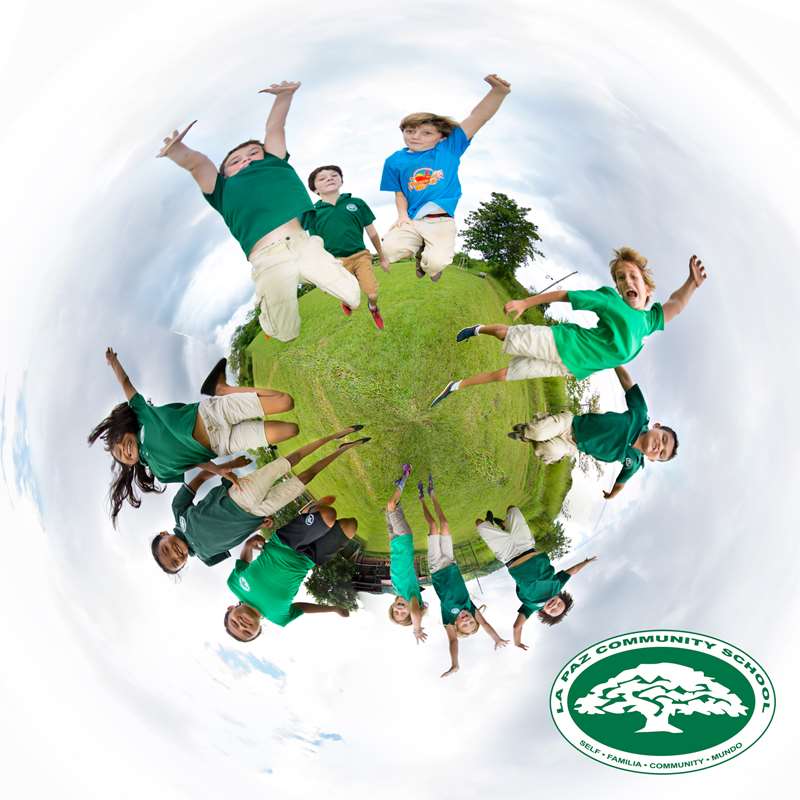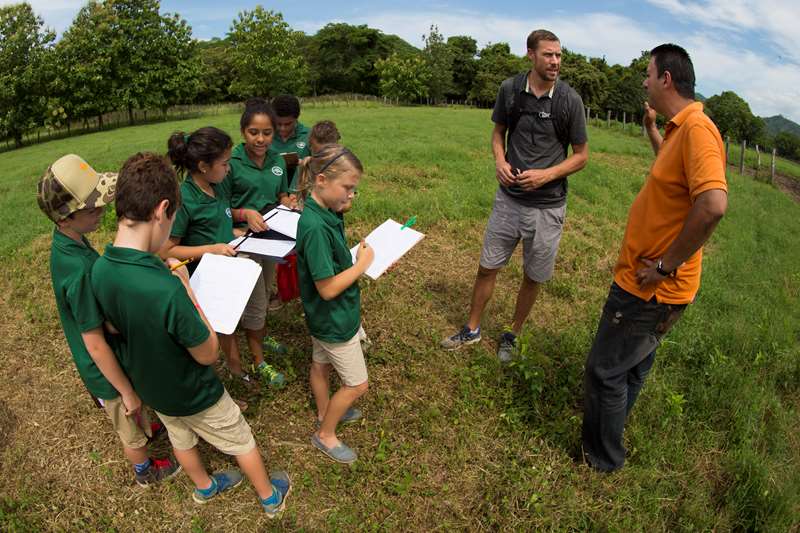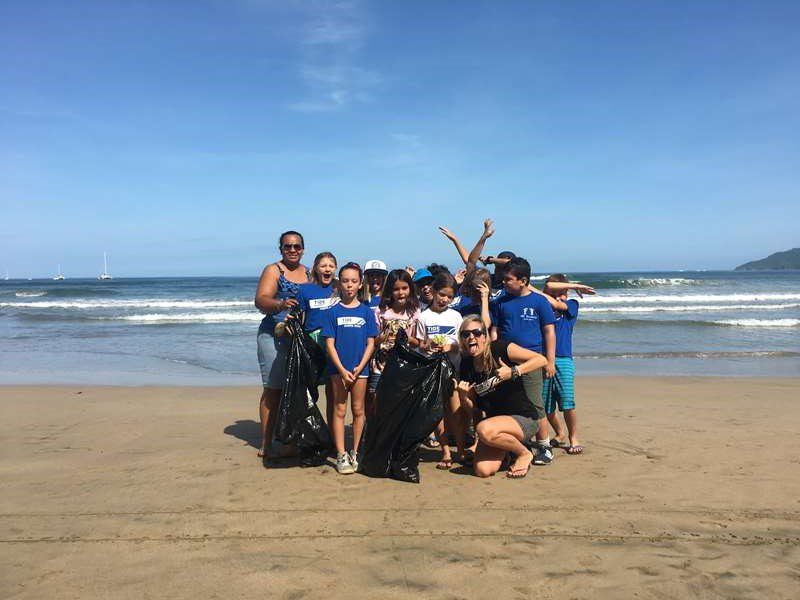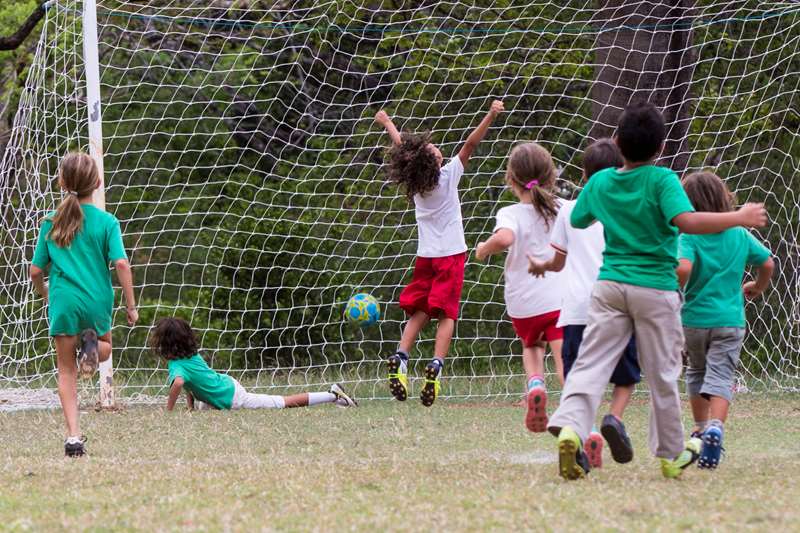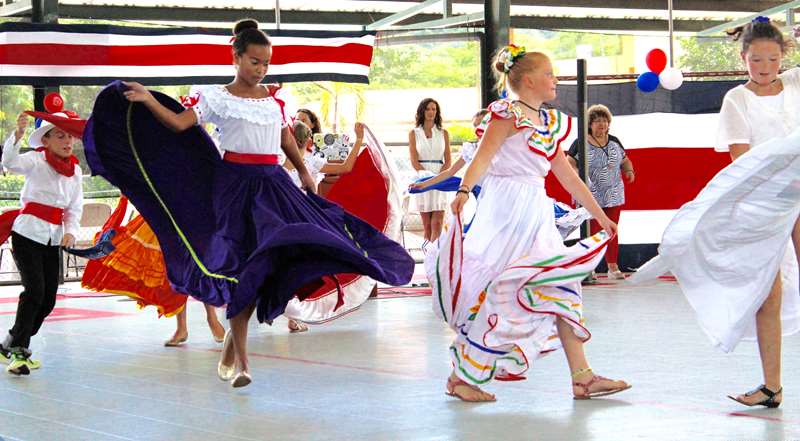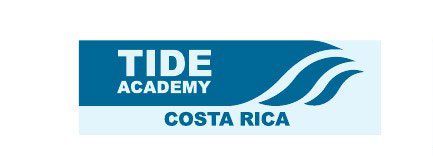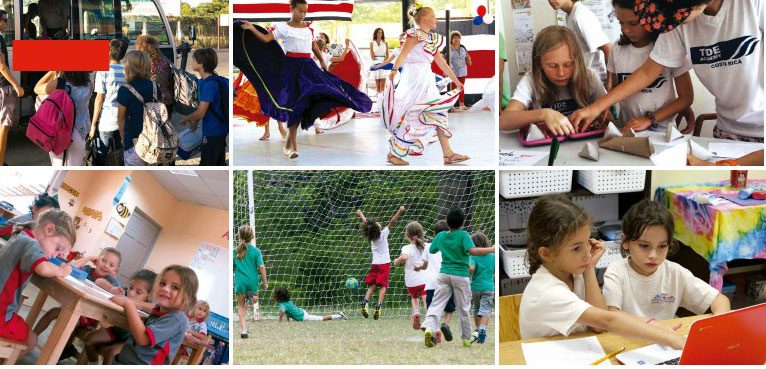
Gold Coast Education Options
An area’s educational institutions form a critical part of the local community fabric. Educating it’s youth lays the groundwork for the area’s future, placing supreme importance on youth education. Here in the greater Tamarindo area, the private school network provides local and expat kids and their families with a variety of unique opportunities for personal and educational development within a multilingual and multicultural environment.
Here you’ll find a thorough overview of the local private education options in the Tamarindo area.
EDUCATIONAL PHILOSOPHY
When considering family life in Guanacaste, parents can choose from an array of options for their children’s schooling. Each school in the area offers a unique educational philosophy, specific student support services, and curriculum features that set it apart. Parents can decide, according to their priorities for their children’s scholastic and personal development, whether to focus more on creativity, language and culture, or stricter academics with an eye to returning home for future university study.
At The Howler, we thought that nearing the end of the academic year would serve as a perfect time to explore and feature the local private schools and what each offers its students. This would give the area’s new families opportunities to review and compare all available options for this very important decision while allowing families continuing in the area’s school systems to acknowledge other options if a change is being considered.
By drawing information from the local educational institutions, we dove deeply into the components of a child’s education that matters to parents. We talked to all of them about their educational philosophies, curricula, teachers and teacher training, extracurricular activities, special needs accommodations, and services.
We first asked all schools about their educational philosophies. Through their educational philosophy, a school demonstrates the beliefs that influence approaches to education and the way students learn and develop. A school’s educational philosophy translates into the curriculum, teacher selection and training, and services provided. It is the foundation upon which every scholastic decision rests and the gauge against which all academic and extracurricular choices are calibrated. A school’s educational philosophy articulates its very essence.
EDUCATION CHOICE
Having a variety of options available for children’s education is a critical part of a healthy and thriving community. Freedom of choice in education gives families the options for educating their children in line with their values and beliefs. Whether parents prefer that their children have primary influences in the arts, language and culture, or the college-preparatory track, or perhaps need to ensure transferrable credits for the child to return home without missing a beat, the greater Tamarindo area offers schools with each of these options.
EXPLORING THE AREA’S SCHOOLS
The following is a synopsis of 6 of the area’s private educational institutions, covering preschool to primary to secondary education, that focuses on educating expat students. By highlighting their educational philosophies, curricula, teachers and teacher training, and the services and student experiences offered by each, we hope to provide parents with critical information in this very important decision about their children’s education. We present parallel information among the schools while highlighting the nuances that make each unique.
Happy Garden Day Care & Preschool is the area’s Early Years education institution and daycare center. Located in Huacas, Happy Garden provides young children a Spanish- English immersion experience as part of their preschool education.
Educational Philosophy: Happy Garden operates on the educational philosophy that the early stimulation that a child receives today will have more impact in the growth and development of his/her brain than in any other moment. Happy Garden’s approach to education focuses on three main concepts: principles, practices, and results (i.e. evaluation) of learning. The school recognizes that all three must work in harmony to make up a well-rounded pedagogy (the method and practice of teaching) that supports a child’s early learning.
About the Teachers: The educators at Happy Garden are all Costa Rican, and are certified teachers in Costa Rica. They are equipped to educate per US Core Curriculum Standards.
Language(s) of Instruction: The language of instruction at Happy Garden is 50% Spanish and 50% English. The young children who attend Happy Garden are from many nationalities and languages, giving each young child an exposure to and appreciation for different cultures.
Student Support Services & Student Experience: While Happy Garden has no formal special education program that accommodates mental and physical disabilities, they accept children with mental challenges and integrate them into their regular programs. They also offer speech pathology training for students requiring that specialized attention. Fifty percent of the students who attend Happy Garden are government sponsored, allowing Costa Rican families to place their young children in a healthy educational environment. This provides a rich setting for expat students to integrate with Costa Rican children, expanding their perspectives and developing an appreciation for different cultures.
Unique Curriculum Features: Happy Garden Day Care & Preschool focuses on learning a second language and incorporates healthy activities such as yoga into daily curricula. The school includes yoga with the belief the practice will help young children grow strong values in a happy and caring environment.
Costa Rica International Academy (CRIA), located in Brasilito, is the only fully U.S. accredited preparatory school in Guanacaste. Representing 23 different nationalities, it focuses on serving expat students but also has a population of local (Tico) kids within its student body. CRIA strives to inspire a passion for learning and provide children with the skills, values and courage to be responsible leaders in their communities and the world.
Educational Philosophy: CRIA focuses on providing students with cultural understanding and a realistic knowledge of the complexities of the global world. The focus is on teaching and modeling virtues such as honesty, compassion, fairness and the “Golden Rule”. The school also focuses on preparing students for a world in which continuing education, creative thought, the ability to use technology, and the acquisition of skills is essential.
About the Teachers: All teachers at CRIA are required to hold teaching certification and represent many different nationalities including Canada, U.S., Costa Rica, Colombia and Bolivia. They are trained to follow the Virginia State Standards of Learning.
Language(s) of Instruction: Both English and Spanish are the languages of instruction, but courses are separated by language. For primary age students including grade 1, a bridging technique is used where they can learn content in both languages before taking English or Spanish- designated courses in Grade 2 and beyond. At CRIA, some courses are taught exclusively in Spanish while some are taught exclusively in English, depending on the subject.
Student Support Service & Student Experience: CRIA provides a fully accessible campus for their disabled students and is prepared to work with mild to moderate learning differences with the backing of a Learning Support Teacher. For learning and development support, students have access to a Guidance Counselor and a College Counselor, as well as supports like homework club and peer-tutoring.
Unique Curriculum Features: CRIA provides students with a large selection of AP (Advanced Placement) courses, where each student will take an average of 2-3 AP courses through their high school years.
Extracurricular Options: CRIA offers a wide variety of extracurricular activities such as Model United Nations, student government, National Honor Society, yearbook, chess club, choir, community service, and SAT preparation. Sports include varsity soccer, varsity volleyball (girls), competitive track, swimming, surfing, and basketball.
Educarte is a bilingual preschool, primary, and high school located near Huacas towards Villarreal. It focuses on the process of learning and encourages creativity through its curriculum, and on Spanish-English bilingual development.
Educational Philosophy: Educarte describes their philosophy as constructivism, where children create their own learning through their experiences and situations they are placed in. Though these approaches, the students become active agents in their education, and facilitators of their own learning while the teacher acts as an important guide.
About the Teachers: Most of the teachers at Educarte are educated in USA, Canada and England. The Spanish teachers are from Spain. All teachers have degrees in teaching.
Language(s) of Instruction: All students and staff are supported in ESL (English as a Second Language) and SSL (Spanish as a Second Language) so to achieve the bilingual environment Educarte offers.
Student Support Services & Student Experience: Educarte offers a psychologist on staff to help students with learning difficulties or personal issues happening within the home. They also offer private tutoring.
Unique Curriculum Features: Educarte follows the Common Core standards for the English subjects such as language arts. For the Spanish subjects they follow the programs by Costa Rica’s Ministerio de Educación Pública (MEP). Educarte celebrates creativity, which shows in their languages and music programs offered at the school. Students can also participate in dance, music and theater as well as swimming and other athletics as part of their curricular and extracurricular activities.
Educarte also offers pre-college programs that follow the South Carolina programs for English to ensure that students are adequately prepared to transfer back home or to study at Canadian or U.S. universities.
Guanacaste Waldorf School (GWS), located in Canafistula, near Villarreal, is open to pre-Kindergarten to Grade 6 students. The school focuses on developing the rhythm of a child’s life through prepared activities and daily celebration of life.
Educational Philosophy: GWS focuses on providing a vibrant, natural learning environment that focuses on holistic education. They strive to inspire learning, curiosity, courage, imagination and joy in the developing human being. The school offers small class sizes and tailors learning to the needs of each child. They focus on arts, experiential learning, and developing children in a thoughtful way.
About the Teachers: All teachers at GWS are Waldorf Trained Teachers, which is a 2-4 year, post-graduate program offered around the world. Some teachers are currently completing training in the Waldorf Training programs offered in Mexico and Columbia. GWS holds the Waldorf certification as central to embodying and teaching with the Waldorf educational philosophy. Teachers at GWS are from North America, Central/South America and Europe.
Language(s) of Instruction: GWS is truly a bilingual school, where they alternate language of instruction between English and Spanish every 2 days. As a result of this approach, the school reports students gaining fluency in both languages regardless of any previous experience.
Student Support Services & Student Experience: For students with physical and mental disabilities, GWS, in collaboration with families, makes a plan for support to ensure students’ needs are met. These can come through learning supports or a classroom aide.
As part of the daily activities, a vegetarian, gluten-free lunch is prepared daily for students. The schools discourages students use of electronic devices.
When dealing with challenges, rather than use a traditional counselor route, the teachers of the school work individually with students and families who need extra support. This process ensures that the emotional and physical needs of the students are met.
Unique Curriculum Features: Waldorf education integrates arts and music into the curriculum more than essentially all other educational pedagogies. Every day students paint, draw, dance, sing and all students learn to play music. It is first introduced through a wooden recorder until 4th grade, when violin is learned. This year they offered aerial silks, tennis, circus arts, jewelry making, piano, guitar, swimming, violin and soccer. While currently only serving students up to Grade 6, GWS is considering adding Grades 7 and 8 in the 2018-2019 school year.
La Paz offers educational programs from kindergarten to Grade 12. Located in Brasilito, La Paz is a private, non- profit International Baccalaureate school that emphasizes dual immersion and experiential education.
Educational Philosophy: La Paz focuses on educating the culturally diverse youth of Guanacaste through bilingual experiential learning and enrichment that integrates the local community and ecology, while preparing students to become thoughtful, creative and active stewards of their environment and future leaders of the world.
About the Teachers: As a bilingual institution, half of the teachers at La Paz are English-speaking and from Canada or the U.S. while the other half are Costa Rican or from other Latin American countries.
Languages of Instruction: As a bilingual school, La Paz teaches half the content in English and the other in Spanish. They plan to move to a Two Way Dual Immersion (TWDI) program to focus on maintaining both languages. The student body is made up of 50% native Spanish speakers, 35% native English speakers, and the remainder natively speaking other languages.
Student Services & Student Experience: La Paz has a Special Education Department known as the Behavior and Education support team that includes a Special Education Teacher, a psychologist and a counselor. The campus is fully handicap accessible and can accommodate students with disabilities. As a non-profit, 45% of students at La Paz are supported through the school’s annual operating budget or an international scholarship program. La Paz offers over 25 different after-school programs to meet the interests of students and the needs of families. Programs range from knitting, to language, to sports. La Paz places arts and athletics as key components of their program.
Unique Curriculum Features: They principally follow the standards from the International Baccalaureate program, referencing the standards from Common Core and the Costa Rican Ministry of Education during curriculum development to ensure that any student arriving from or returning to a US or Costa Rican accredited school may do so in a relatively seamless manner. La Paz offers three years of mandatory college preparatory sessions between Grades 10 and 12. A school counselor can work individually with students to make choices about school selection and understand and work towards admissions requirements.
TIDE Academy, located in Tamarindo, follows a different format of education that expands the traditional academic structure and is flexible to each student.
Educational Philosophy: TIDE Academy believes that each child learns differently and this should be celebrated. TIDE caters to those students with interests outside of school who need flexibility to incorporate their traveling, practices, and internships in their life.
About the Teachers: The teachers at TIDE Academy are from the U.S., Costa Rica, and Europe. Most have degrees in teaching and degrees in the field they are teaching. The teachers believe that as educators they must have the flexibility to work and celebrate each child’s learning style and pace.
Language(s) of Instruction: Classes are offered in Spanish, English and French. Students are supported with extra language help as needed.
Student Support Services & Student Experience: TIDE has an Occupational Therapist able to work with all students who need extra assistance throughout the day and after school, if necessary. They also have a Homework Club class after school once a week to help students needing extra help. For students who may learn at a different pace and/ or may need additional assistance, TIDE’s small class sizes (max. of 6 students) allow the teacher to work with each child at a pace that is customized to his or her needs.
Unique Curriculum Features: TIDE does not follow the US Common Core Standards but states that every student returning to where they are from should be at the same level as their peers, or ahead. It offers a set of very unique courses and programs, including construction, ninja warrior, dance, cheerleading, computer coding, ocean awareness, surf analysis, movie discussion, surf fitness, theatre, and environmental awareness. Extracurriculars include surf academy and dance academy, with music academy to soon be added.
A RANGE OF CHOICE
By featuring the preschool, primary, and secondary education programs available in the area, we were able to see why so many families from all over the world educate their kids in the Tamarindo area. The array of curricula, educational philosophies, languages, extracurricular options, student services, and experiences offered by our schools is certainly something to value and celebrate.
For families currently educating their children within one of these schools, we encourage you to share your child’s experience with other area families interested in the various options. For families considering a move to the area, we recommend taking adequate time to visit school websites, make contact with school liaisons, visit the school, and pay attention to the curriculum and what your goals for your child are now and in the future, both in Costa Rica and beyond.
The Howler wishes all students, teachers and staff at area schools an enjoyable summer and a successful academic year!


